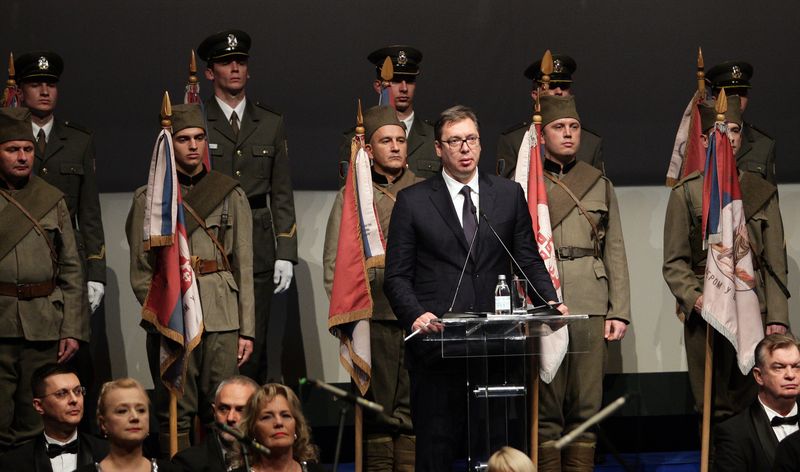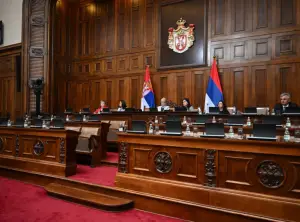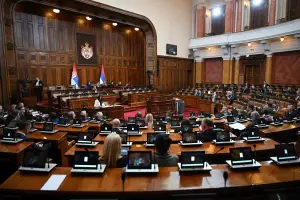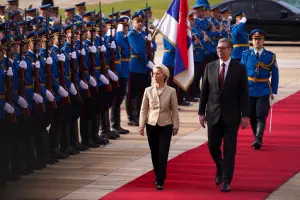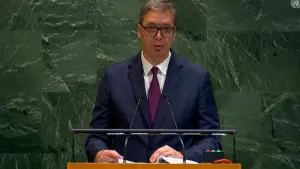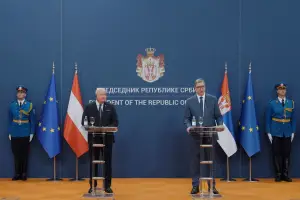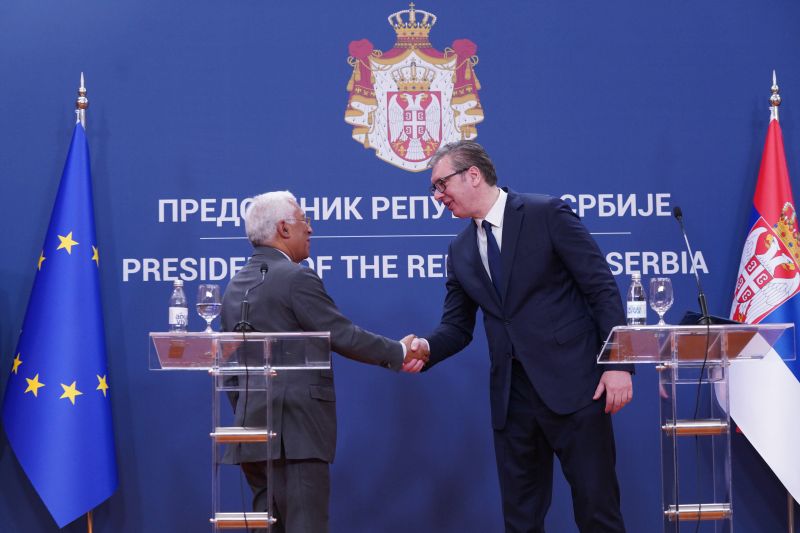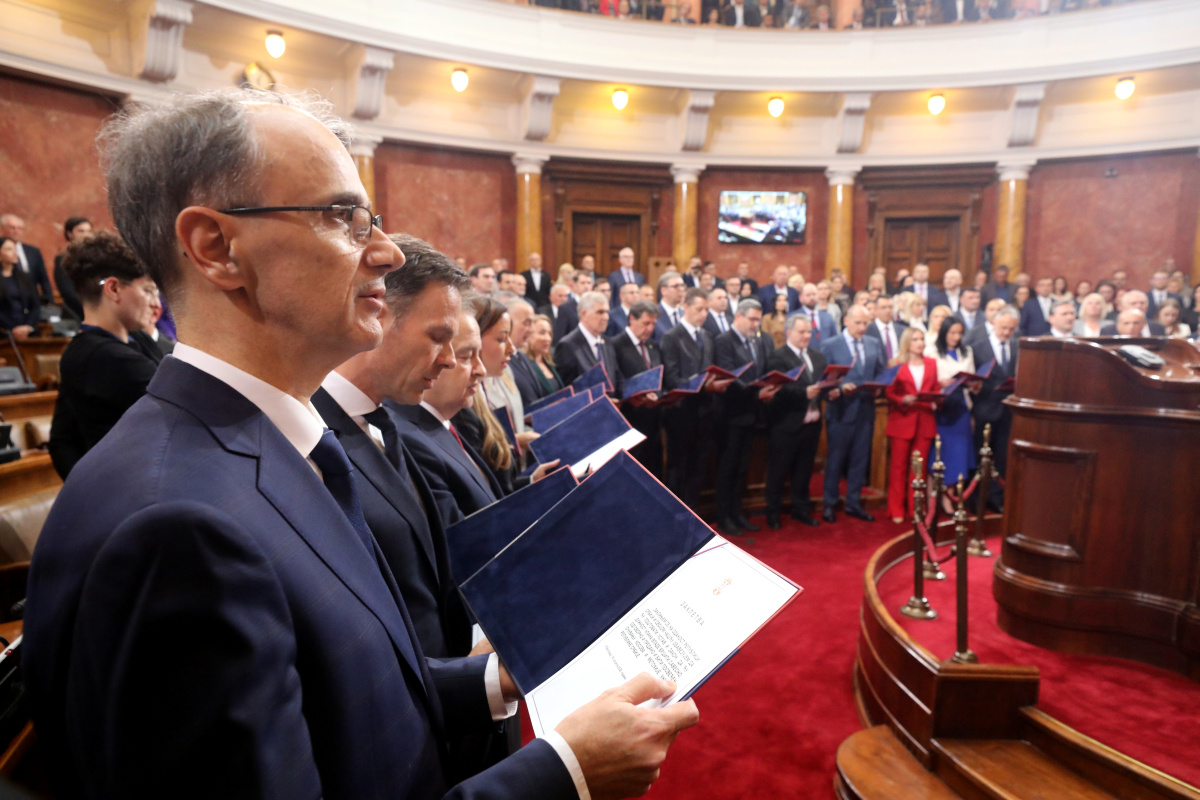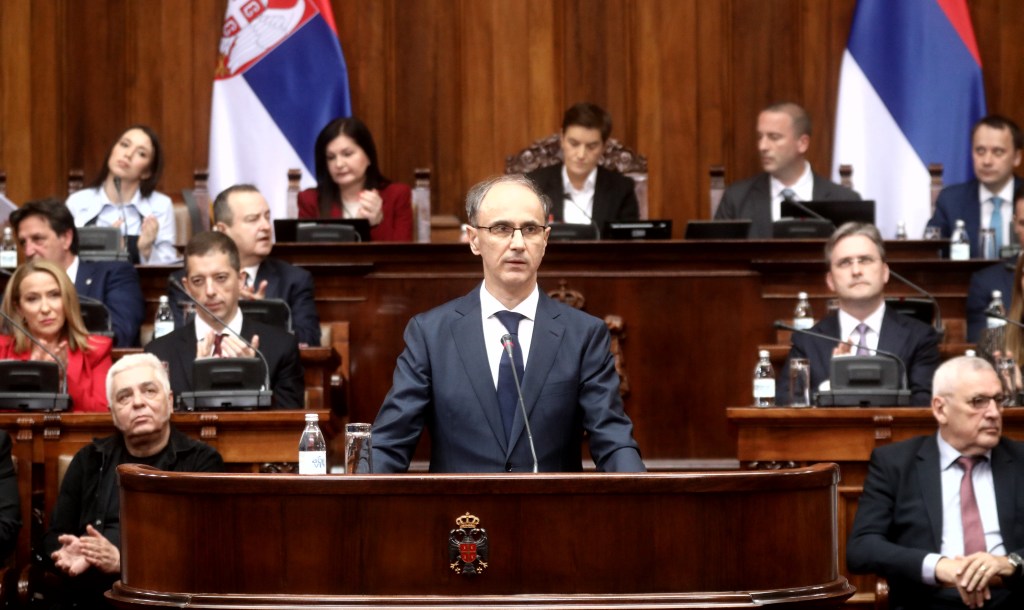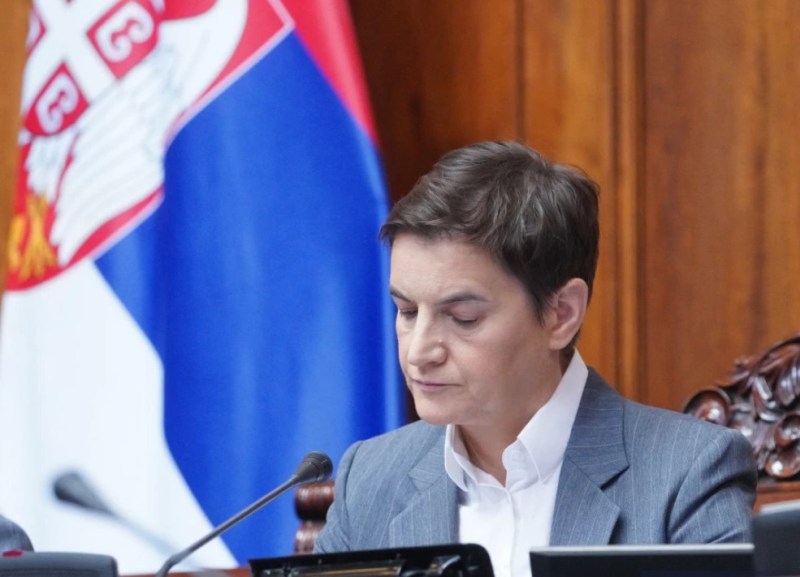President of the Republic of Serbia Aleksandar Vucic said tonight that for Serbia's citizens there is nothing more important than to have peace, good relations and cooperation with everyone, because only in peace can they continue to build and elevate "our one and only Serbia".
With cooperation, good relations to continue to build Serbia
Speaking at a ceremony at Sava Centre on the occasion of the 100th anniversary of the liberation of Belgrade in the Great War, Vucic said that Serbia must respect itself and that just as she knew back then how to defend her freedom with weapons, if someone threatens that freedom today she will again know how to defend it.
I am asking everyone not to mistake all this that I say for our weakness, because just as we knew in 1914, 1915 and 1918 to defend and liberate our Serbia, we will always manage to do the same if someone tries to harm our country, said the President of Serbia.
After the breakthrough on the Thessaloniki front, the First Army of Field Marshal Petar Bojovic was chasing the enemy non-stop, going from one assault to another, it freed Serbia all at once, from its south - Vranje, Vladicin Han, Grdelica and Leskovac to Nis, from where the occupying forces were expelled on 12 October 1918.
Vucic recalled that in just 46 days the Serbian army, in a liberation rush, passed 800 kilometres from Thessaloniki to Belgrade, when the Komitas entered Belgrade in the early dawn on this day in 1914, as an advance guard of the First Army.
Vucic pointed out that somewhere in this city, among the memories that have been so often built one over another, in the streets that have crossed through centuries, in all that historic turmoil, there is still that old trace - the First Army, November, Bojovic, freedom and Belgrade.
Less than 37 months since the heroic defence of Belgrade in October 1915, the legendary command of Major Dragutin Gavrilovic was finally executed: "The face of Belgrade, our capital, will be bright!", Vucic said.
He added that the ravages of the looted city, the fire and smoke of the burned stores, the ruined railway station were found by the liberators of Belgrade after the occupier’s army retreated, along with the previously destroyed most important institutions of Serbian identity and culture - from the Serbian Cathedral Church and the Serbian Academy of Sciences and Arts, to the National Museum, National Theatre, Ruzica Church and demolished schools and hotels.
But they also encountered the indestructible freedom-loving spirit of the citizens, who were laying flower carpets from Slavija to Kalemegdan in front of the victorious Serbian Army units. Getting to Belgrade meant getting to freedom, entering Belgrade meant getting Serbia back to the people of Serbia and their children, added Vucic.
He said that in the Great War small people were the winners, ordinary people, who have not finished big schools, often small in stature and age.
From the eight-year-old orphan Momcilo Gavric, the volunteer and the youngest non-commissioned officer in the world, to the 1,300 squad leaders of the celebrated unit, whose motto was "Not even one step back", and of whom a small number lived to see the end of the war. United with the regular army in one thought and feeling, they responded with their whole being to the order "Heroes, advance to your homeland!" issued by Field Marshal Zivojin Misic before the Thessaloniki front.
Vucic presented data from the 1919 Peace Conference in Paris that Serbia lost 1,247,435 people, or 28 percent of the total population.
402,435 soldiers were killed in battle, or died from wounds or the epidemic, while 477,475 soldiers died during the retreat through Albania.
36,477 soldiers died in the fighting on the Thessaloniki front between 1916 and 1918, 81,214 were killed or died in captivity, and 34,781 soldiers died of wounds or disease in the territory of Serbia in 1915.
He added that the losses among civilians were horrendous - almost 845,000 people. Of the 200,000 citizens who followed the army in the withdrawal through Albania, more than 140,000 people were killed or died, and almost 360,000 people died of louse-borne typhus.
Vucic said that if the citizens of Serbia kept only one minute of silence in the honour of each and every of our ancestors who lost their lives in the Great War, they would keep silent non-stop 866 days - two years, four months and 14 days.
The commemoration was attended by Speaker of the National Assembly of Serbia Maja Gojkovic, ministers Zorana Mihajlovic, Sinisa Mali, Nela Kuburovic, Branko Ruzic, Nebojsa Stefanovic, Aleksandar Vulin, Aleksandar Antic and Zoran Djordjevic.
Other officials attending were Mayor of Belgrade Zoran Radojicic, President of Vojvodina government Igor Mirovic, NBS Governor Jorgovanka Tabakovic, Republika Srpska President Milorad Dodik, Republika Srpska Prime Minister Zeljka Cvijanovic, as well as representatives of the army, churches, public and cultural life.
The commemoration began with the playing of the national anthem "God of Justice" and a short film about events in Serbia during the Great War. After the speech of President Vucic, the premiere of the film “Zaspanka za vojnike” (Lullaby for Soldiers) began.
Today the first lesson in schools was dedicated to this topic, and a memorial service and laying of flowers was held at the Memorial to Defenders of Belgrade at the New Cemetery. A music performance “Belgrade Shadows” was held on the plateau in front of the Belgrade City Assembly.
The wreaths at the French Military Cemetery and the Memorial to Defenders of Belgrade were laid by Mayor of Belgrade Zoran Radojicic, Envoy of the President of the Republic Nikola Selakovic, State Secretary at the French Ministry of Defence Genevieve Darrieussecq and US Ambassador to Serbia Kyle Scott.

